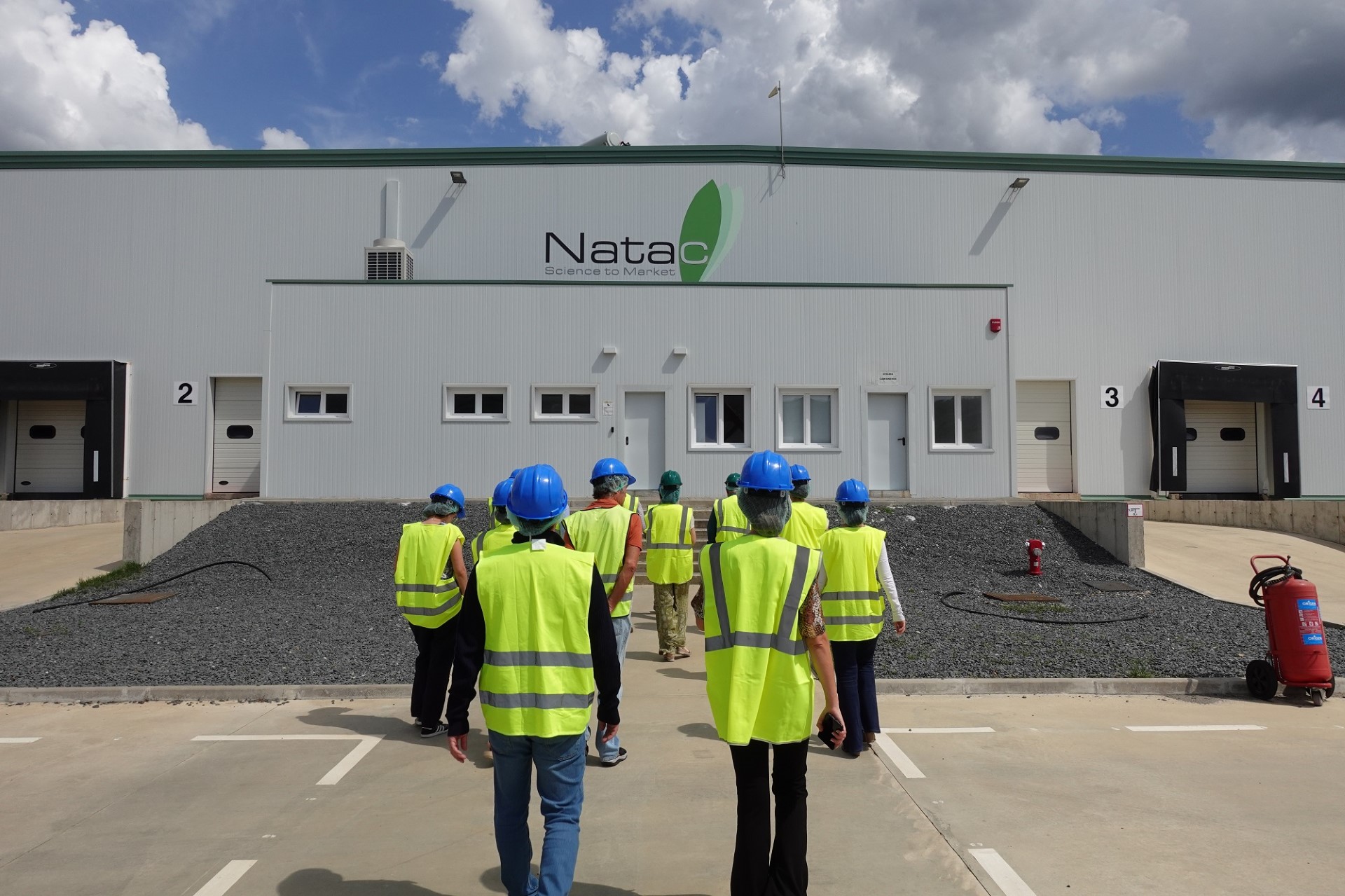
Flagship biorefinery project starts
Submitted by:
Andrew Warmington
A kick-off meeting took place on 13 June at Hervás in the Extremadura region of Spain for the Sustainext project. This is the first flagship project to be funded by the Circular Bio-based Europe Joint Undertaking (CBE JU) and aims “to revolutionise the botanical extracts industry with a unique model that can then be replicated by the European bio-based industry”.
The project will create a 20,000 tonnes/year, multi-product, net zero digital biorefinery. It will be based on the dynamic and analytical biorefinery (DYANA) concept, in which the entire supply chain is integrated and which uses cascading feedstock valorisation, batch-optimised on its initial composition.
Sustainext will use six locally-sourced feedstocks, including three - rosemary, chamomile and lemon verbena – that will be grown on disused tobacco fields and between solar panels. The others - olive, artichoke/thistle and pomegranate – are agro-industrial side-streams, whose use is said to represent “an opportunity to give new life to certain under-exploited biological raw materials”.
According to the CBE JU, this will bring socioeconomic benefits to an impoverished region, while offering alternative crops to tobacco, which currently covers 8,664 hectares, and helping to valorise some of Extremadura’s 6,800 tonnes/year of agro-industrial biomass. It will also expedite the shift from photovoltaic to more sustainable agro-voltaic solar energy, which is competing for land in the region.
A 21-strong consortium from industry, government and academia has come together in the project. Natac, a producer of sustainable plant extracts, will manage the plant. Switzerland’s Mibelle Biochemistry is among the others.
CBE JU has also recently signed its first 21 grant agreements. These will fund 293 beneficiaries in all 27 EU states to the tune of €116 million. The ultimate aim is to “boost the competitiveness and increase the resilience of Europe’s bio-based economy by making use of the often-underutilised resources to produce consumer products and industrial solutions to replace fossil-based ones,” CBE JU said.
Sustainext is one of two ‘Flagship Innovation Actions’ within this scope that will receive €28 million to build first-of-their-kind industrial-scale facilities. The other is Sylplant, which will build a 10,000 tonnes/year facility to use agricultural or forestry residues with yeast to make protein-rich food and feed ingredients. In addition, eight ‘Innovation Actions’ will receive €41 million to establish demonstration-scale production systems and business models, and ten ‘Research & Innovation Actions’ will receive €44 million to develop new materials, products and ingredients from renewable and biological resources.
Among the resources to be used will be agricultural residues, paper production side-streams and municipal solid waste, terrestrial and aquatic plants, and wood residues. The ‘actions’ range across a wide area but projects receiving grants include:
* Robocoop-EU and Brilian: €4.7 million and €4.8 million respectively to develop new cooperative regional business models using agricultural waste streams
* SynoProtein: €5 million to formulate a sustainable process that will convert residue from sawmills into single-cell proteins for fish feed and produce biochar for animal feed while capturing CO2
* Thermofire: About €4.5 million to produce biobased flame retardant materials for the automotive, aerospace and textile sectors using feedstocks such as cellulose and flax
Finally, a ‘Coordination & Support Action’ has been granted €2.9 million to develop digital monitoring tools to assess the environmental and social impact of bio-based industrial systems. A new €215.5 million call is now open for project proposals across 18 topics. The deadline for the submission of proposals is 20 September.
